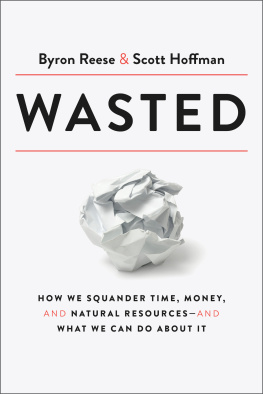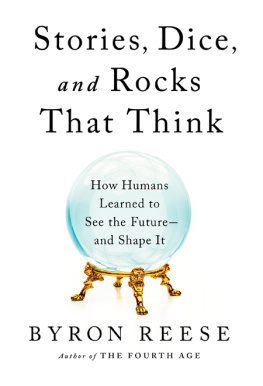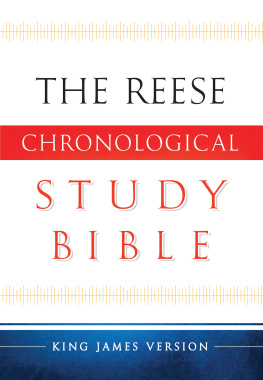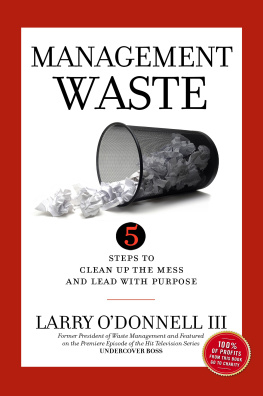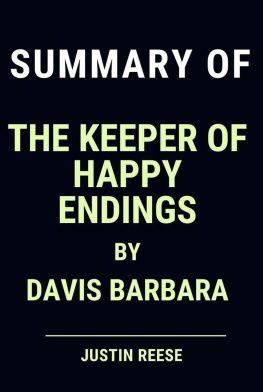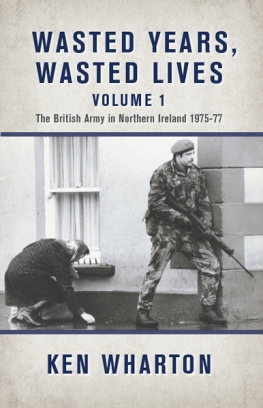Byron Reese - Wasted
Here you can read online Byron Reese - Wasted full text of the book (entire story) in english for free. Download pdf and epub, get meaning, cover and reviews about this ebook. year: 2021, publisher: Currency, genre: Romance novel. Description of the work, (preface) as well as reviews are available. Best literature library LitArk.com created for fans of good reading and offers a wide selection of genres:
Romance novel
Science fiction
Adventure
Detective
Science
History
Home and family
Prose
Art
Politics
Computer
Non-fiction
Religion
Business
Children
Humor
Choose a favorite category and find really read worthwhile books. Enjoy immersion in the world of imagination, feel the emotions of the characters or learn something new for yourself, make an fascinating discovery.
- Book:Wasted
- Author:
- Publisher:Currency
- Genre:
- Year:2021
- Rating:3 / 5
- Favourites:Add to favourites
- Your mark:
- 60
- 1
- 2
- 3
- 4
- 5
Wasted: summary, description and annotation
We offer to read an annotation, description, summary or preface (depends on what the author of the book "Wasted" wrote himself). If you haven't found the necessary information about the book — write in the comments, we will try to find it.
Wasted — read online for free the complete book (whole text) full work
Below is the text of the book, divided by pages. System saving the place of the last page read, allows you to conveniently read the book "Wasted" online for free, without having to search again every time where you left off. Put a bookmark, and you can go to the page where you finished reading at any time.
Font size:
Interval:
Bookmark:
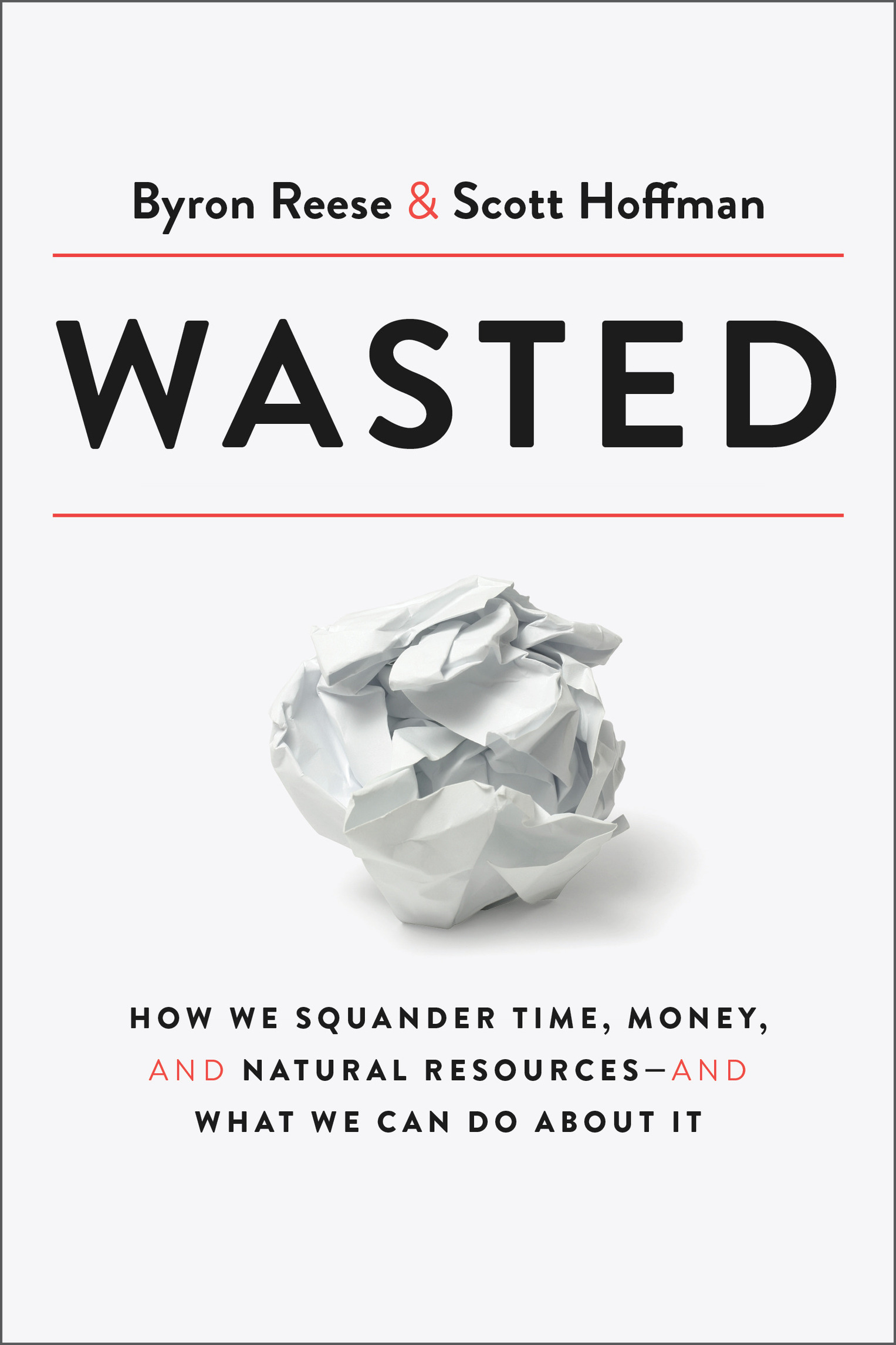
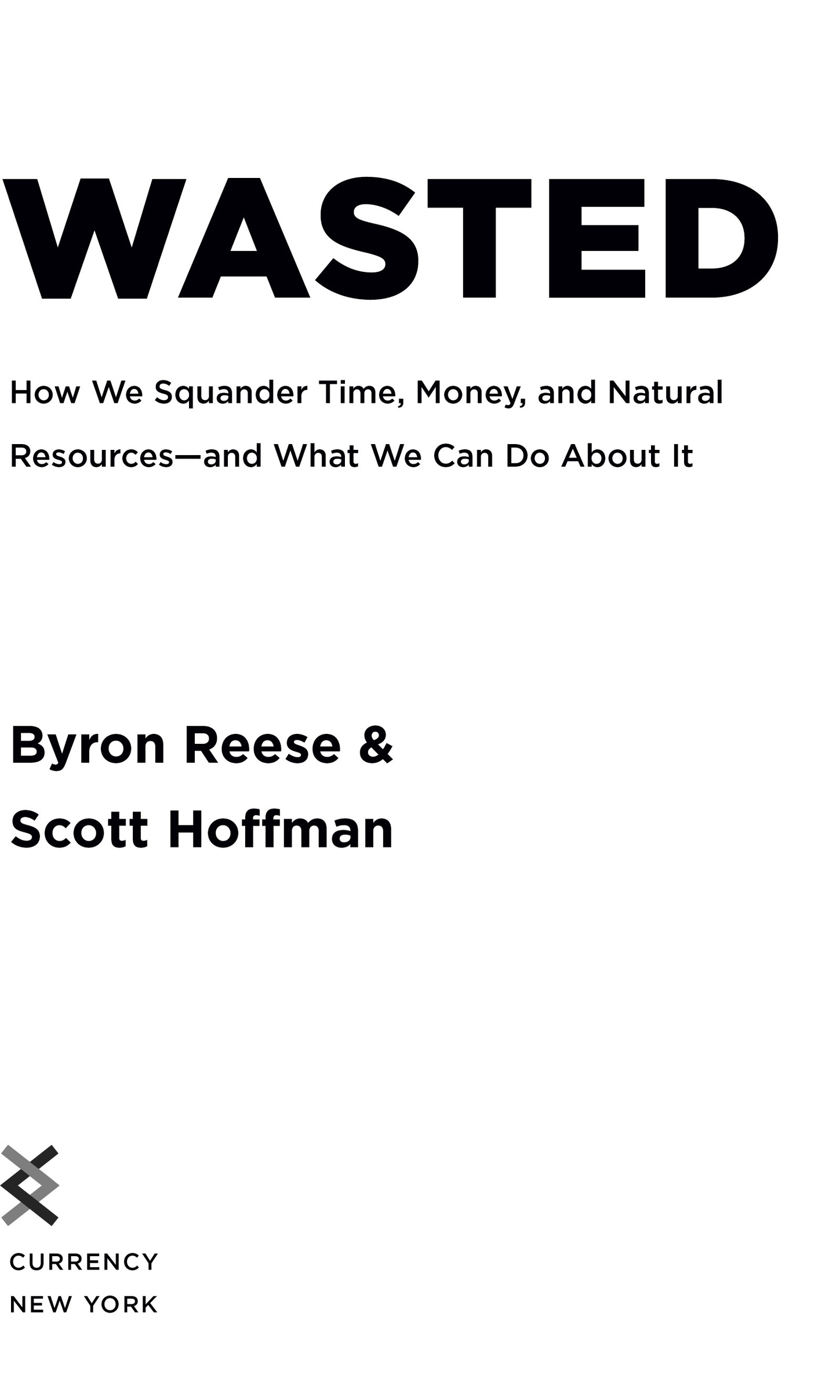
Copyright 2021 by Duneroller Publishing, LLC
All rights reserved.
Published in the United States by Currency, an imprint of Random House, a division of Penguin Random House LLC, New York.
Currency and its colophon are trademarks of Penguin Random House LLC.
Hardback ISBN9780593135181
Ebook ISBN9780593135198
crownpublishing.com
Book design by Caroline Cunningham, adapted for ebook
Cover design: Anna Kochman
Cover image: blackred/Getty Images
ep_prh_5.7.0_c0_r0
Imagine you have ordered something from an online retailera computer cable, perhaps. The delivery driver drops the box off at your house, and you waste a minute or two finding a pair of scissors to cut through the multiple layers of tape.
You pull the item out of the box, which will later be thrown away and wasted, and open it up, discarding that packaging as well. Finally you uncover the computer cable you ordered.
But alas, after wasting several minutes trying to get it to work, you realize its the wrong one. You waste more time figuring out which cable you do, in fact, need. You then waste time repackaging the cable and initiating a return online, which takes a few more minutes.
A delivery driver picks the box up from your home, and it is flown back to some return center, where yet another person opens it, credits your account, and either sends the product back to the manufacturer or throws it in a bin of returned merchandise that might be purchased by another company, which will then have to sort through it all, classify it, and try to sell it. Thenwell, you get the idea.
And then imagine the replacement cable you ordered is defective.
It is wearisome to think through the ramifications of even a single misordered cable, and yet snafus like that happen to most of us on a regular basis. These mistakes, in aggregate, generate an unfathomable amount of waste.
But the cable example actually represents a trivially small amount of waste compared to what awaits you elsewhere in this book. If you zoom the lens out, you see a larger expanse of waste, such as the waste of the time you spend in traffic, the wasted heat your car generates, even the waste inherent in warfare. All of these examples represent the types of waste well explore further. But even in examining these sources of waste, we hardly scratch the surface. If we pull back even further, we see a larger world of waste: the wasted potential of a life lived in poverty, the waste of a person who dies needlessly, and more.
Waste is everywhere. And once you train your eyes to look for it, you will see it all around you. The next time you fill up your car with gasoline and inevitably drip a few drops on the ground, you will recall that, collectively, these drops add up in volume to an oil spill the magnitude of the one from the Exxon Valdez. Every single year. In the United States alone. Then, if you add up the amount of gasoline spilled when people fill up their lawnmowers and garden equipment, you get another Exxon Valdez oil spill every single year.
When a tanker ruptures and spills its load or a pipeline bursts, its headline news. But a fraction of an ounce of spilled gasoline barely registers. Sure, we recognize a small loss, but we never really think about how all the waste and inefficiency in our lives add up, and what it all means, ultimately.
In writing this book, we went on a journey to try to understand the waste inherent in modern life. We both soon realized how little we knew about so many things related to waste. So we started posing all kinds of questions:
Is it better to wipe up a spill in the kitchen with a paper towel or a damp rag?
How would the world be different if there had never been any war?
Does the money you save buying bulk goods offset the amounts of those goods that spoil?
What portion of the twenty-four hours in a day do we waste?
When you go on a diet and lose weight, where does that mass actually go?
Some answers are easy to figure out. With regard to the paper towel question, a damp rag wastes less, unless you wait until the tap water gets warm or you wash the rag after every use. If either condition is true, use the paper towel.
And regarding weight loss, 84 percent of any weight you lose gets expelled in the form of carbon dioxide when you exhale and 16 percent is expelled as water through urine, sweat, and tears. The question of whether carbon dioxide from humans is waste comes up later in this book. Urine is (assuming youre not the type to recycle the minerals in it), but sweat is less clearly so, since it serves the obvious function of regulating body temperature. Well let you decide the extent to which tears are waste.
Incidentally, none of the weight is burned, or directly turned into power or heat for your body. Your body gets its warmth and energy from breaking down bonds between molecules. As a result, every bite you eat eventually comes back out as air and water. (The solid waste you excrete comes from food you ate recently, and so was never weight to begin with.)
Other areas of waste, however, are more nuanced and counterintuitive. When you examine things that seem to be obviously wasteful, digging a little deeper reveals that there is often a method to what appears to be human madnessfor instance, why it makes sense to ship rocks halfway around the world to extract aluminum from them, or to print hats and T-shirts announcing Super Bowl winners who never won the big game.
No one wants to waste, and people spend a great deal of mental energy trying to avoid it, which is laudable. But the world is full of well-meaning attempts to avoid waste that actually cause more waste than they prevent.
A recent documentary highlighted a family of freegans who decided to live for a year off food that had been thrown away. Their thinking was that if they consumed food that might otherwise go to a landfill, they would be saving the world from waste and inefficiency. But the gasoline that powered the car they used to drive from place to place to get those waste calories is a non-renewable resource that they used to retrieve a renewable one, food. Then theres the time they spent driving around, the depreciation of the car itself, and so forth.
One of the major themes of this book deals with what is seen and what is unseen. When we think of waste, its easy to picture all the food thats thrown away. Its much harder to see the second- and third-order effects of trying to avoid waste in the first place. In many cases, understanding waste requires diving several layers deeper to understand that a behavior that seems wasteful (or efficient) at first glance is anything but.
Simple questions, like paper versus plastic or flying versus driving, are devilishly complex. Recycling paper, it turns out, is greatif a recycling truck comes around to get it. Drive those old newspapers across town and you have done more harm than good.
Making these determinations often involves many trade-offs, such as whether methane or carbon dioxide is worse for the environment, or whether it is better to consume a large amount of freshwater or a small amount of fuel.
It really does depend on what the fuel is and where the water comes from, and there is a different answer in Iceland than in Islamabad. And to top it off, we cant rely on our intuition to guide us because so much is counterintuitive. Who would ever guess, for instance, that the family dog has a bigger carbon footprint than the family SUV?
Font size:
Interval:
Bookmark:
Similar books «Wasted»
Look at similar books to Wasted. We have selected literature similar in name and meaning in the hope of providing readers with more options to find new, interesting, not yet read works.
Discussion, reviews of the book Wasted and just readers' own opinions. Leave your comments, write what you think about the work, its meaning or the main characters. Specify what exactly you liked and what you didn't like, and why you think so.

